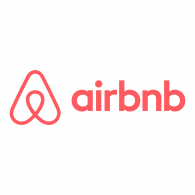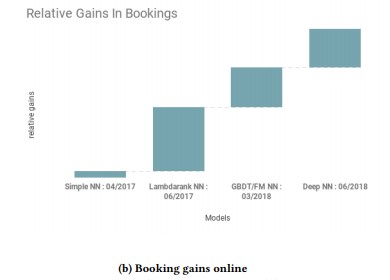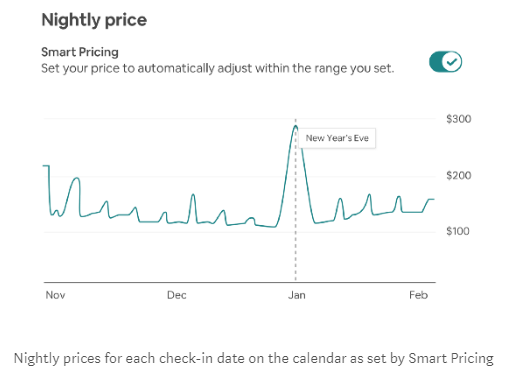Airbnb — Customizing Recommendations for Every Trip

Overview of Airbnb's strong implementation of machine learning: search engine, optimized pricing, photo-categorization and more
It’s hard to believe that just ten years ago, Airbnb was a flailing start-up struggling to secure venture capital funding.[1] As of 2018, Airbnb, most recently valued at $37 billion[2], boasts nearly 5 million residential listings in 81,000 cities, as well as tens of thousands of experiential offerings.[3] While many factors have contributed to Airbnb’s success – including its ability to generate tremendous customer demand and navigate regulatory threats– one of the firm’s greatest strengths is its ability to successfully match travelers with prospective rental properties using machine learning.
Cited as a “poster child of the ‘sharing economy2,’” Airbnb’s continued success is contingent on ensuring that guests and hosts have a positive experience with each Airbnb stay. In order to rapidly build this two-sided marketplace, as well as to maintain a competitive edge against competitors such as VRBO, Airbnb uses machine learning to recommend optimal Airbnbs to prospective guests, leading to more bookings, higher reviews, and greater repeat business. The firm aims to delight guests and hosts with each interaction, building a valuable & trusted network.
Most significantly, Airbnb is constantly improving its search function and has made tremendous progress with each iteration, as seen in Figure 1. Although Airbnb has data on millions of searches and bookings, data on each individual listing is relatively sparse since each location can only be booked for at most 365 nights each year. To compensate for this, the search algorithm incorporates ~200 factors, including simpler inputs like price, location, amenities, and décor, as well as more complex inputs such as the length of time the potential guest has spent looking at various listings and the likelihood that a host is going to accept the guest based on historical host behavior.[4] Airbnb’s data scientists consistently use automated machine learning[5] to test & further improve their algorithms, and earlier this year, Airbnb announced a new search algorithm that leverages deep learning and neutral networks, providing more effective & efficient recommendations than ever before. [4]
Beyond its search engine, Airbnb uses machine learning, in conjunction with structural modeling, to optimize pricing and forecast demand.[6] By analyzing historical bookings, the model determines the likelihood that guests will book reservations at various lead times (i.e., the percentage of guests that will book an Airbnb three months in advance versus 3 weeks in advance). Hosts can opt into a ‘Smart Pricing’ feature, which allows Airbnb to dynamically change the listing’s price, as seen in Figure 2. Airbnb also informs potential guests about how far in advance they should book their reservation.
Furthermore, Airbnb uses machine learning to categorize massive sets of unlabeled pictures, as seen in Figure 3.[7] Their training data came from pre-labeled data directly from hosts, as well as from a small portion of third-party-labeled photos, and they used this data to train an impressive photo-classification model at scale.
Beyond these implementations of machine learning, Airbnb’s management team has further invested in the medium term use of data through the establishment of Data University in 2016.[8] According to Airbnb’s data science blog, “At the beginning of Q3 2016, only about 30% of Airbnb employees were a WAU [weekly active user] of our data platform, which was significantly lower than other hypergrowth internet company peers we benchmarked with like Facebook and Dropbox.” [8] In addition to training their team of 100+ data scientists, the 30-course curriculum covers a range of data-driven topics, including machine learning (see Figure 4 for curriculum overview). This focus on incorporating data into every decision, in all parts of their organization, is undoubtedly a key investment for both the short & medium term.
Looking forward, in addition to investing in employee training, there are a number of ways in which Airbnb could continue to incorporate machine learning. For instance, Airbnb’s current customer service is completed through personalized email messaging and call-centers. Given recent advancements in chatbot technologies, users might find it efficient to chat live with a bot during the search process. Additionally, partnering directly with Noise Aware’s sound monitor solution would enable hosts to feel more comfortable renting their homes without the fear of guests throwing unwanted parties.[9]
It’s clear that Airbnb’s recommendation engine has been tremendously successful in delivering customized travel experiences to millions of users. As data on guests becomes increasingly available, it’s worth pondering just how personalized these recommendations can become. For instance, would a guests appreciate it if Airbnb recommended a property based on its proximity to a particular store that she shops at? Or, its proximity to a location she has visited in the past? In other words, just how customized is too customized for the comfort of Airbnb guests? Users appreciate the personalization; we have come to expect customized offerings, but how will Airbnb (and similar recommendation search engines) find the balance between customization and privacy?
Figure 1: Relative Gains in Bookings due to Airbnb’s Evolving Search Models [4]
Figure 2: Airbnb’s ‘Smart Pricing’ Feature [6]
Figure 3: Airbnb’s Categorized Photos [7]
Figure 4: Data University Curriculum [8]
[799 Words]
References:
[1] Biz Carson, “How 3 guys turned renting an air mattress in their apartment into a $25 billion company,” Business Insider, February 23, 2016. https://www.businessinsider.com/how-airbnb-was-founded-a-visual-history-2016-2, accessed November 2018.
[2] Trefis Team, “As A Rare Profitable Unicorn, Airbnb Appears To Be Worth At Least $38 Billion,” Forbes, May, 11, 2018. https://www.forbes.com/sites/greatspeculations/2018/05/11/as-a-rare-profitable-unicorn-airbnb-appears-to-be-worth-at-least-38-billion/#150fe1412741, accessed November 2018.
[4] Malay Haldar, Mustafa Abdool, Prashant Ramanathan, Tao Xu, Shulin Yang, Huizhong Duan, Qing Zhang, Nick Barrow-Williams, Bradley Turnbull, Brendan Collins, Thomas Legrand, “Applying Deep Learning to Airbnb Search,” 2018, https://arxiv.org/pdf/1810.09591.pdf, accessed November 2018.
[5] Hamel Husain & Nick Handel, “Automated Machine Learning — A Paradigm Shift That Accelerates Data Scientist Productivity @ Airbnb,” May 10, 2017. https://medium.com/airbnb-engineering/automated-machine-learning-a-paradigm-shift-that-accelerates-data-scientist-productivity-airbnb-f1f8a10d61f8, accessed November 2018.
[6] Sharan Srinivasan, “Learning Market Dynamics for Optimal Pricing,” August 10, 2018. https://medium.com/airbnb-engineering/learning-market-dynamics-for-optimal-pricing-97cffbcc53e3, accessed November 218.
[7] Shijing Yao, “Categorizing Listing Photos at Airbnb,” May 2, 2018. https://medium.com/airbnb-engineering/categorizing-listing-photos-at-airbnb-f9483f3ab7e3, accessed November 2018.
[8] Jeff Feng, Erin Coffman & Elena Grewal, “How Airbnb democratizes Data Science with Data University,” May 24, 2017. https://medium.com/airbnb-engineering/how-airbnb-democratizes-data-science-with-data-university-3eccc71e073a, accessed November 2018.
[9] Jon Porter,” This senor will alert your Airbnb host if it thinks you’re having a party,” The Verge, October 29, 2018. https://www.theverge.com/circuitbreaker/2018/10/29/18037604/noiseaware-gen-3-indoor-outdoor-security-microphone, accessed November 2018.





Very well written, really liked how Airbnb has incorporated machine learning in its search algorithm so efficiently to personalize recommendation. The deep learning algorithm, explained in your citation [4] is an interesting read as well.
I agree to your concern and strongly believe that ensuring a highly personalized output without encroaching into the boundaries of privacy is the toughest challenge that Airbnb will face in the near future. Seeking appropriate permissions, using suitable disclaimers, and continuously updating the algorithm to understand which frequently-visited location is the supermarket v.s. which is a weekend-getaway, is key to achieving perfection via algorithmic decision-making. While studying consumer purchase-behaviour, search-behaviour etc by tracking online activities is prevalent, realizing the boundaries of privacy is equally important for sustainable success.
It is definitely hard to draw a line between customization and privacy and it is a challenge for all budding e-commerce service companies that tries to connect buyers and sellers. I would try implement the learnings from the FRC case of “Alibaba” which used different ways to build the trust between buyers and sellers and drew a firm line to protect privacy of both parties. AI and ML can be used to track past incidents of mistrust and then use it to predict and mitigate this risks in the future.
I think the answer to your question of privacy comes down to the intent and subsequent actions of the business. If AirBnB can demonstrate that personal information they gather is used to provide higher quality, more personalized services, then customers will likely accept it regardless. It is a different story, however, if improper usage of data leads AirBnB (or any company) to exploit or unfairly penalize individuals. I am very much intrigued by JC’s comment above; the concept of an informational escrow account is really interesting. This speaks to the greater trend we’re seeing of monetizing personal data to the point where it’s practically equivalent to currency. Here’s a (currently) extreme case of this, but I wouldn’t be surprised if this became a more common business model: https://www.engadget.com/2017/09/07/data-dollar-store-london-ben-eine/.
I am thinking of the balance between personalized product and improve efficiency. Some times there is a conflict between them, if we wanna a personalized design or customer service, it would cost us more time and resource. Your article opened a discussion towards this topic. I agree with you that Airbnb did a good job in using machine learning for customizing recommendations. This could also open a new solution to service industry and retail industry, which needs lots of labor on customer service.